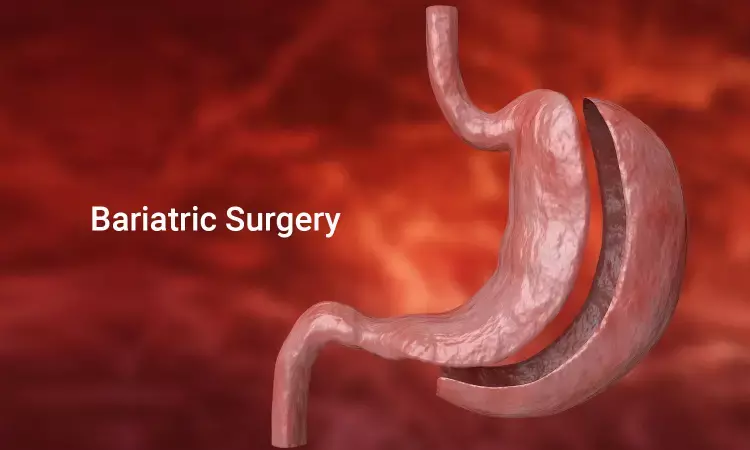- Home
- Medical news & Guidelines
- Anesthesiology
- Cardiology and CTVS
- Critical Care
- Dentistry
- Dermatology
- Diabetes and Endocrinology
- ENT
- Gastroenterology
- Medicine
- Nephrology
- Neurology
- Obstretics-Gynaecology
- Oncology
- Ophthalmology
- Orthopaedics
- Pediatrics-Neonatology
- Psychiatry
- Pulmonology
- Radiology
- Surgery
- Urology
- Laboratory Medicine
- Diet
- Nursing
- Paramedical
- Physiotherapy
- Health news
- Fact Check
- Bone Health Fact Check
- Brain Health Fact Check
- Cancer Related Fact Check
- Child Care Fact Check
- Dental and oral health fact check
- Diabetes and metabolic health fact check
- Diet and Nutrition Fact Check
- Eye and ENT Care Fact Check
- Fitness fact check
- Gut health fact check
- Heart health fact check
- Kidney health fact check
- Medical education fact check
- Men's health fact check
- Respiratory fact check
- Skin and hair care fact check
- Vaccine and Immunization fact check
- Women's health fact check
- AYUSH
- State News
- Andaman and Nicobar Islands
- Andhra Pradesh
- Arunachal Pradesh
- Assam
- Bihar
- Chandigarh
- Chattisgarh
- Dadra and Nagar Haveli
- Daman and Diu
- Delhi
- Goa
- Gujarat
- Haryana
- Himachal Pradesh
- Jammu & Kashmir
- Jharkhand
- Karnataka
- Kerala
- Ladakh
- Lakshadweep
- Madhya Pradesh
- Maharashtra
- Manipur
- Meghalaya
- Mizoram
- Nagaland
- Odisha
- Puducherry
- Punjab
- Rajasthan
- Sikkim
- Tamil Nadu
- Telangana
- Tripura
- Uttar Pradesh
- Uttrakhand
- West Bengal
- Medical Education
- Industry
Bariatric surgery tied to hypoglycemia risk in people without diabetes: Study

Sweden: Bariatric surgery compared to usual care increases the risk of hypoglycemia-related events in patients without diabetes, finds a recent study in the journal Diabetes, Obesity and Metabolism.
Hypoglycemia or sudden episode of low blood sugar is a potentially serious effect of bariatric surgery but there is a lack of long-term outcomes from prospective, controlled trials. Kajsa Sjöholm, University of Gothenburg, Gothenburg, Sweden, and colleagues, therefore, aimed to examine the incidence of hypoglycemia-related events over up to 31 years in patients treated with bariatric surgery in the Swedish Obese Subjects (SOS) study (n=4047) -- a prospective controlled intervention study.
This study included 1989 patients treated with bariatric surgery and 2027 control patients with obesity who received usual care. Using the National Patient Register, the researchers identified diagnosed hypoglycemia and events commonly attributed to hypoglycemia (confusion, syncope, epilepsy, and seizures), requiring hospital or specialist outpatient treatment.
Analyses were stratified by baseline glycemic status. HRs are adjusted for inclusion year, age, sex, smoking, HbA1c, and BMI at baseline. At the time of analysis (December 31, 2018), the median follow-up was 22 years.
Key findings of the study include:
- Compared with usual care, bariatric surgery was associated with increased incidence of hypoglycemia-related events in patients without baseline diabetes (168 and 219 events, respectively), with a more pronounced risk during the first years of follow-up.
- Multivariate analyses in patients without baseline diabetes indicated male sex, older age and higher HbA1c levels as associated with hypoglycemia-related events.
- No association was found between risk of hypoglycemia-related events and bariatric surgery in patients with baseline diabetes.
"Our findings demonstrate that bariatric surgery is associated with an increased incidence of hypoglycemia-related events in patients without baseline diabetes, especially during the first years following treatment," concluded the authors.
Reference:
The study titled, "Long-term incidence of hypoglycemia-related events after bariatric surgery or usual care in the Swedish Obese Subjects (SOS) Study- A register-based analysis," is published in the journal Diabetes, Obesity and Metabolism.
DOI: https://dom-pubs.onlinelibrary.wiley.com/doi/10.1111/dom.14420
Dr Kamal Kant Kohli-MBBS, DTCD- a chest specialist with more than 30 years of practice and a flair for writing clinical articles, Dr Kamal Kant Kohli joined Medical Dialogues as a Chief Editor of Medical News. Besides writing articles, as an editor, he proofreads and verifies all the medical content published on Medical Dialogues including those coming from journals, studies,medical conferences,guidelines etc. Email: drkohli@medicaldialogues.in. Contact no. 011-43720751


